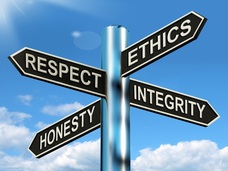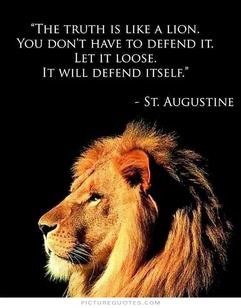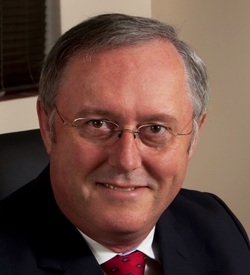
We live in a world where we are constantly bombarded with information. Almost from the moment you open your eyes in the morning, you are being fed information. A huge percentage of information is accessed from mobile devices, such as cellphones, so many people access their cellphone shortly after awaking in the morning to get updated on the news and the activities of friends. Then we switch on the TV or the radio, or read our newspapers. The question is: how many of the information we are receiving can be believed? Is it true, is it something that I can trust? And is it possible to distinguish between truth and lie? I believe so, yes.
I have figured out a simple principle: "Something that IS right also LOOKS (and sounds) right. If it does not look right it requires scrutiny". Let me elaborate on this principle.
Almost twenty years back I got involved in the interesting field of document security. I learnt that many documents are protected from being copied or falsified and those are called "high security documents", of which bank notes, cheques, ID cards and credit cards, ID documents and driver's licences are good examples. The reason why these documents are being protected is so that people with ill intent will find it very difficult to falsify it in order to defraud honest people out of their money. There are various techniques that can be applied to protect the security of a document. You may have heard terms such as watermarks, holograms, micro-printing, rainbow printing, encryption in this regard. In fact, there are encyclopaedias full of measures that can be taken to prevent document fraud. One of the leading experts on the subject lectured us and he cautioned us to "never underestimate the ignorance of an honest person". What he meant was that most people are honest and they do not live lives of deceit: they accept things at face value, they expect the other person to be honest and trustworthy. So most people are not on the outlook for fraud and deception on a daily basis. They live simple lives where they expect other people to behave likewise. Today, the average person treats information in the same manner: we expect information to be trustworthy, especially when it comes from sources that we perceive to be trustworthy.
It is this so-called "ignorance of an honest person" that many people use and misuse to pursue their finely crafted and planned deception, mostly for their own personal gain. And it is not limited to security documents; in the "information age" people use words and images and sounds to deceive. It is sad and indeed frustrating that many of our public figures use these techniques to hide from us the real facts, the cold hard truth. Before information is presented to us, or when it has accidentally became public knowledge, the facts that can hurt is removed or obscured to paint a different picture to the reality that exist. And it almost always is for personal gain, to the intended detriment of the receiver.
And this is where my above principle is applicable. We need to listen more carefully. We need to watch more carefully. When we consume information, we need to evaluate it. If something IS right, it will also LOOK (and sound) right. Honest people do not try to deceive you, they tell it like it is, they give you something from their heart and soul that is embraced by honesty, integrity and is handed to you with respect and ethics. They do what they do and they show it to the world. They do not have to employ spokespeople and legal teams that must follow them with a verbal broom and wipe their ill intended actions and their selfish behaviour under the carpet. They are not shy of who they are and what they do and they especially do not mind if their actions are evaluated by others, because they have nothing to hide and they are confident in their good intentions. If only all public figures, especially politicians could be such people.
Listen and look beyond the obvious: if it does not look or sound right, it deserves scrutiny, it needs to be investigated. And you will find that people who cannot be trusted will almost always resist any attempt to investigate their actions. Do not believe everything you see and hear. Evaluate, check, make up your own mind. Trust your gut feel.
I have figured out a simple principle: "Something that IS right also LOOKS (and sounds) right. If it does not look right it requires scrutiny". Let me elaborate on this principle.
Almost twenty years back I got involved in the interesting field of document security. I learnt that many documents are protected from being copied or falsified and those are called "high security documents", of which bank notes, cheques, ID cards and credit cards, ID documents and driver's licences are good examples. The reason why these documents are being protected is so that people with ill intent will find it very difficult to falsify it in order to defraud honest people out of their money. There are various techniques that can be applied to protect the security of a document. You may have heard terms such as watermarks, holograms, micro-printing, rainbow printing, encryption in this regard. In fact, there are encyclopaedias full of measures that can be taken to prevent document fraud. One of the leading experts on the subject lectured us and he cautioned us to "never underestimate the ignorance of an honest person". What he meant was that most people are honest and they do not live lives of deceit: they accept things at face value, they expect the other person to be honest and trustworthy. So most people are not on the outlook for fraud and deception on a daily basis. They live simple lives where they expect other people to behave likewise. Today, the average person treats information in the same manner: we expect information to be trustworthy, especially when it comes from sources that we perceive to be trustworthy.
It is this so-called "ignorance of an honest person" that many people use and misuse to pursue their finely crafted and planned deception, mostly for their own personal gain. And it is not limited to security documents; in the "information age" people use words and images and sounds to deceive. It is sad and indeed frustrating that many of our public figures use these techniques to hide from us the real facts, the cold hard truth. Before information is presented to us, or when it has accidentally became public knowledge, the facts that can hurt is removed or obscured to paint a different picture to the reality that exist. And it almost always is for personal gain, to the intended detriment of the receiver.
And this is where my above principle is applicable. We need to listen more carefully. We need to watch more carefully. When we consume information, we need to evaluate it. If something IS right, it will also LOOK (and sound) right. Honest people do not try to deceive you, they tell it like it is, they give you something from their heart and soul that is embraced by honesty, integrity and is handed to you with respect and ethics. They do what they do and they show it to the world. They do not have to employ spokespeople and legal teams that must follow them with a verbal broom and wipe their ill intended actions and their selfish behaviour under the carpet. They are not shy of who they are and what they do and they especially do not mind if their actions are evaluated by others, because they have nothing to hide and they are confident in their good intentions. If only all public figures, especially politicians could be such people.
Listen and look beyond the obvious: if it does not look or sound right, it deserves scrutiny, it needs to be investigated. And you will find that people who cannot be trusted will almost always resist any attempt to investigate their actions. Do not believe everything you see and hear. Evaluate, check, make up your own mind. Trust your gut feel.


 RSS Feed
RSS Feed
